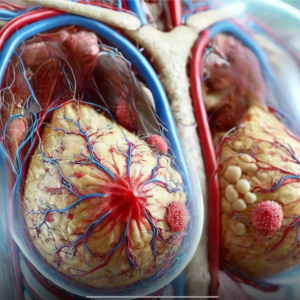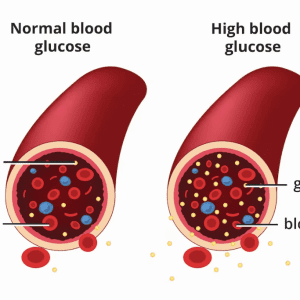Keeping your skin looking youthful and vibrant isn’t just about investing in expensive creams or serums—it actually starts from within. One of the most crucial vitamins for maintaining skin elasticity and preventing wrinkles is Vitamin C. This mighty nutrient plays a key role in collagen production, fights off free radicals, and keeps your skin looking firm and glowing. But what happens if you’re not getting enough? Your skin could lose its bounce, become dull, and start showing signs of premature aging.
Why Vitamin C Is Essential for Your Skin

Vitamin C, also known as ascorbic acid, is a powerhouse antioxidant that protects your skin from oxidative stress. This stress is often caused by pollution, UV rays, and other environmental aggressors. But what makes Vitamin C truly vital? It’s all about collagen production.
Collagen is a structural protein that keeps your skin plump, firm, and resilient. As we age, our bodies naturally produce less collagen, leading to fine lines, wrinkles, and sagging skin. Vitamin C stimulates collagen synthesis, which helps your skin maintain its youthful bounce. Without enough Vitamin C, your skin becomes weaker and more prone to wrinkles.
Video: THIS ONE VITAMIN DEFICIENCY WRINKLING YOUR FACE // Vitamins For Skin Update
What Happens When You Don’t Get Enough Vitamin C?
If your diet lacks sufficient Vitamin C, your skin can start to show signs of aging much faster. Here are some of the most noticeable effects:
- Loss of Elasticity: Without enough collagen, your skin can become loose and saggy.
- More Wrinkles and Fine Lines: Reduced collagen means deeper, more noticeable wrinkles.
- Dull and Uneven Skin Tone: Vitamin C helps brighten the complexion by reducing hyperpigmentation.
- Slower Wound Healing: Your skin struggles to repair itself, leading to prolonged irritation and visible damage.
- Weakened Skin Barrier: Your skin becomes less effective at fighting off external aggressors like UV rays, pollution, and toxins.
If you’re noticing any of these symptoms, it might be time to evaluate your Vitamin C intake.
Best Dietary Sources of Vitamin C

The good news? Vitamin C is found in plenty of everyday foods, making it easy to boost your intake. Here are some of the best options:
- Citrus Fruits: Oranges, lemons, grapefruits, and limes are classic choices.
- Berries: Strawberries, blueberries, raspberries, and blackberries are nutrient-dense options.
- Tropical Fruits: Kiwi, papaya, mango, and pineapple offer a tasty Vitamin C boost.
- Vegetables: Bell peppers, broccoli, Brussels sprouts, and spinach are excellent sources.
- Tomatoes and Potatoes: Often overlooked but surprisingly rich in Vitamin C.
Try to include at least 1–2 servings of these foods daily to support your skin’s health and vitality.
The Power of Topical Vitamin C in Skincare

Eating a Vitamin C-rich diet is great, but applying it topically can also deliver direct benefits to your skin. Topical Vitamin C serums and creams are popular for good reason—they pack a punch when it comes to anti-aging.
Here’s how they can help:
- Reduces Fine Lines and Wrinkles: Helps stimulate collagen production directly on the skin’s surface.
- Brightens the Complexion: Helps fade dark spots and even out skin tone.
- Fights Free Radicals: Protects against damage from UV rays and pollution.
- Promotes Firmness: Boosts collagen for a tighter, more resilient appearance.
For optimal results, look for stable forms of Vitamin C in skincare, such as ascorbic acid, sodium ascorbyl phosphate, or magnesium ascorbyl phosphate. Use a few drops of a high-quality serum each morning before moisturizing and applying sunscreen.
How Much Vitamin C Do You Need?

The recommended daily intake of Vitamin C varies based on age, lifestyle, and overall health:
- Adult Women: 75 mg per day
- Adult Men: 90 mg per day
- Smokers: An extra 35 mg per day due to increased oxidative stress
- Pregnant/Breastfeeding Women: Higher amounts may be needed
While most people can meet their Vitamin C needs through a balanced diet, supplements can help if your intake is low. Look for high-quality ascorbic acid supplements or natural sources like acerola cherry or camu camu powder.
Signs You Might Be Vitamin C Deficient

If your body isn’t getting enough Vitamin C, it will start to show in your skin and overall health. Here are some warning signs to look out for:
- Dry, Rough, or Scaly Skin: Reduced collagen leaves the skin less hydrated and smooth.
- Slow Wound Healing: Cuts and scrapes take longer to mend.
- Easy Bruising: Fragile blood vessels due to weakened collagen structure.
- Small Red or Purple Spots on the Skin: Known as petechiae, these are tiny blood leaks.
- Bleeding Gums: A classic sign of deficiency.
- Fatigue and Weakness: Your body may feel sluggish and drained.
While severe deficiency can lead to scurvy—a condition marked by bleeding gums and joint pain—even mild deficiency can make your skin look tired and aged.
Video: The 7 Signs You’re Not Getting Enough Vitamin C
How to Increase Your Vitamin C Intake for Healthier Skin
Want to keep your skin glowing and youthful? Here are some simple tips to boost your Vitamin C levels:
- Start Your Day with Citrus: Drink fresh orange juice or add lemon to your morning water.
- Snack on Berries: Keep a handful of strawberries or blueberries within reach.
- Load Up on Greens: Add spinach, kale, and bell peppers to your meals.
- Invest in a Good Serum: Topical Vitamin C can give your skin an extra boost.
- Consider Supplements: If your diet falls short, a daily Vitamin C tablet can help fill the gap.
Final Thoughts: Nourish Your Skin from Within
When it comes to maintaining smooth, elastic, and youthful skin, Vitamin C is truly a game-changer. From promoting collagen production to protecting against environmental stressors, it’s an essential component of your skincare routine—both internally and externally.
Don’t wait until your skin shows signs of aging to up your intake. By incorporating Vitamin C-rich foods and quality skincare products, you can keep your skin looking radiant, resilient, and wrinkle-free. Take charge of your skin health today and see the difference that a little Vitamin C can make!


